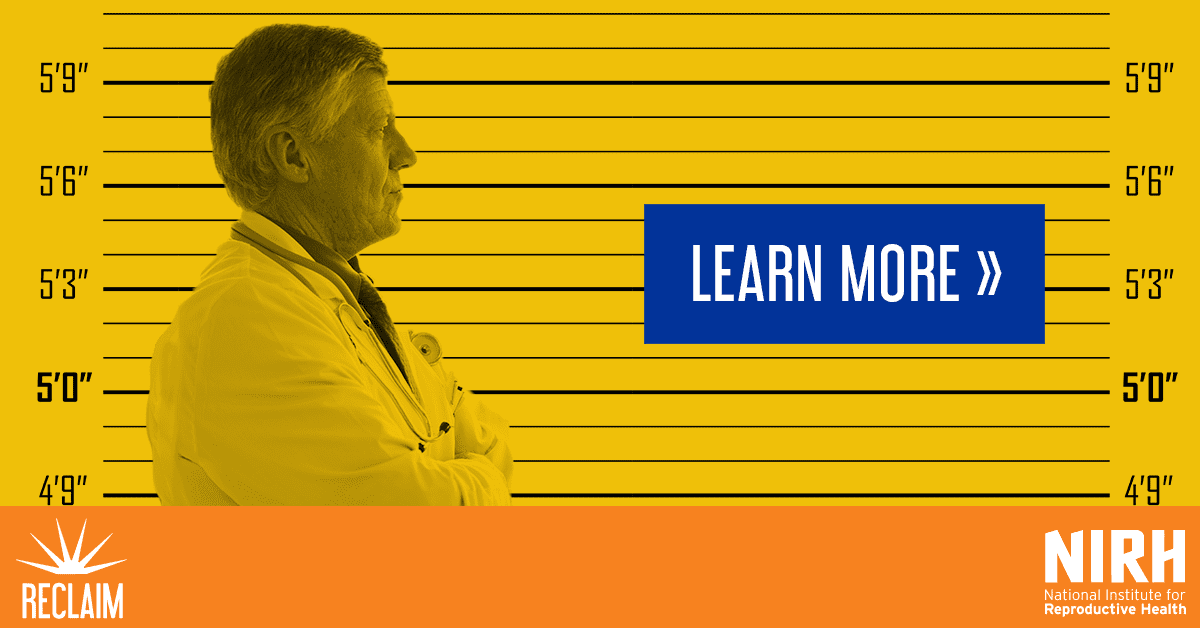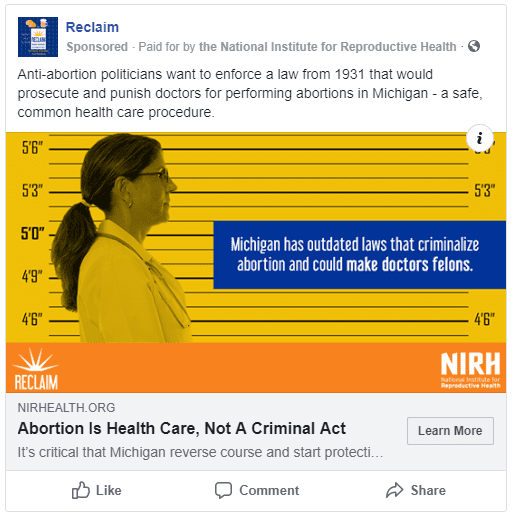Abortion Without Punishment Campaigns
Some states across the country have criminal laws that may criminalize people who end their own pregnancies or medical professionals who provide abortion. In even more states, other existing laws can be used to criminalize people who self-manage their abortions. Some of these laws have been on the books for more than a century; some are currently enforced; and some are newly introduced by anti-abortion politicians who want to push abortion out of reach and criminalize pregnancy decisions.
NIRH firmly believes that abortion is health care, not a criminal act.
Someone may self-manage an abortion for a variety of reasons, ranging from lack of clinical access to the desire to end one’s pregnancy on one’s own terms. Often, that could mean risking prosecution and jail. NIRH is working to ensure that however a person chooses to end a pregnancy, they can do so safely, effectively, and without fear of prosecution.
With abortion rights being eroded nationwide, fewer abortion clinics open and accessible, and the availability of safe and effective medication abortion, we now face the perfect storm for the criminalization of people and medical professionals for seeking or providing abortions.
In 2018 and 2019, NIRH supported statewide education campaigns in Wisconsin, New York, Ohio, and Michigan to raise awareness about the risk of criminalization for people seeking abortions and providers who offer abortion care.
WISCONSIN
In 2019, NIRH launched a campaign in partnership with the Wisconsin Alliance for Women’s Health (WAWH) to educate Wisconsinites and legislators about Wisconsin’s dangerously outdated law that criminalize abortion. Without the protections provided by Roe in place, Wisconsin’s 1849 abortion law that would criminalize doctors who perform abortions could be enforced, making them guilty of a felony. A provider could be prosecuted and punished with up to six years in prison for performing a safe, common health care procedure. Coinciding with Wisconsin’s medical community’s annual lobby day, billboards in Madison as well as Facebook, Twitter, and Google Search ads provided information about the outdated and dangerous nature of Wisconsin’s law — and emphasized that abortion should be treated as health care, not a criminal act. The campaign received media coverage from Wisconsin Public Radio and Rewire News, among other outlets.


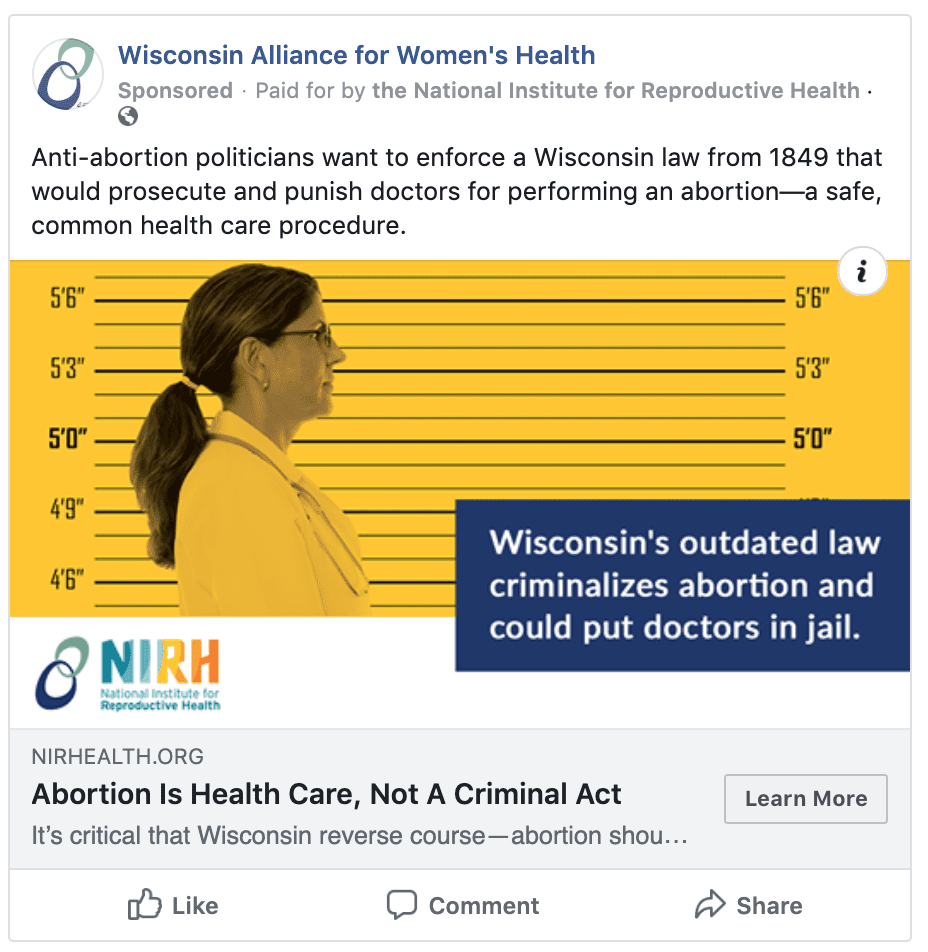

Across the country, the conversations around abortion access and restrictions has reached a fever pitch. While Wisconsinites have also ramped up their advocacy efforts around abortion access in the state, the billboards around Madison made possible by NIRH, have empowered and emboldened people to more confidently fight back against bad policies and political agendas.Sara Finger, Founder & Executive Director of WAWH
NEW YORK
At the start of 2019, NIRH launched a campaign to educate New Yorkers and legislators about how New York’s previous abortion law criminalized people who sought to end their pregnancy on their own, without involving a medical professional. New York’s criminal law also had a chilling effect on medical providers. Billboards in Albany as well as Facebook, Twitter, and Google Search ads provided information about the outdated and dangerous nature of New York’s law — and emphasized that abortion should be treated as health care, not a criminal act.

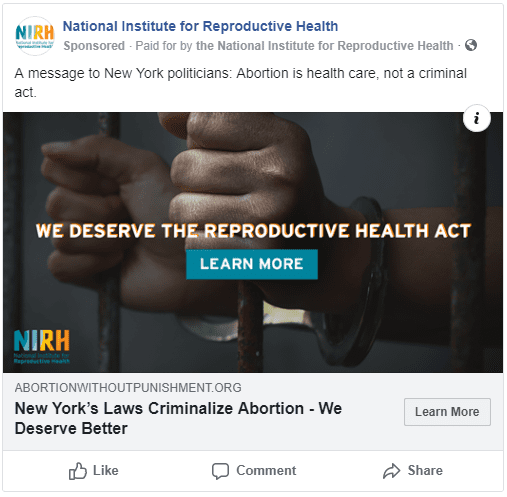
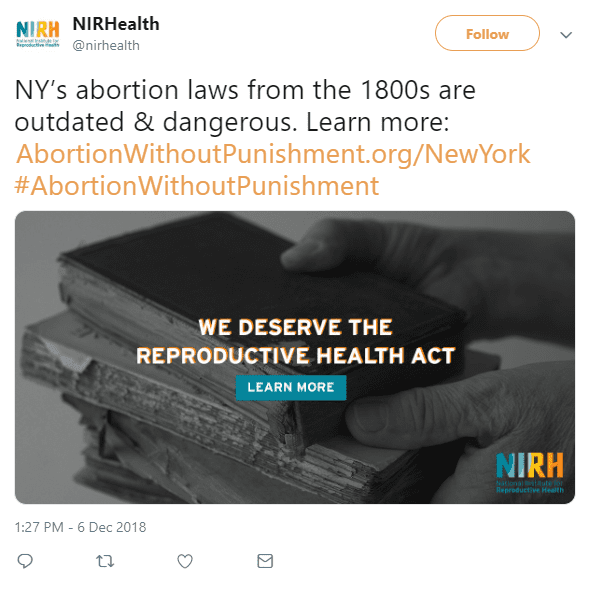

OHIO
In the fall of 2018, NIRH launched a campaign in Ohio in partnership with Pro-Choice Ohio to educate the public about House Bill 565, a piece of legislation that would have outlawed abortions in Ohio, subjecting people to criminalization, jail time, and even the death penalty. Under this bill, anyone who violated the law – a pregnant person, medical professionals, friends who drive someone to the clinic or help them purchase abortion pills — could be charged with murder, including aggravated murder, which carried with it the death penalty or life in prison.

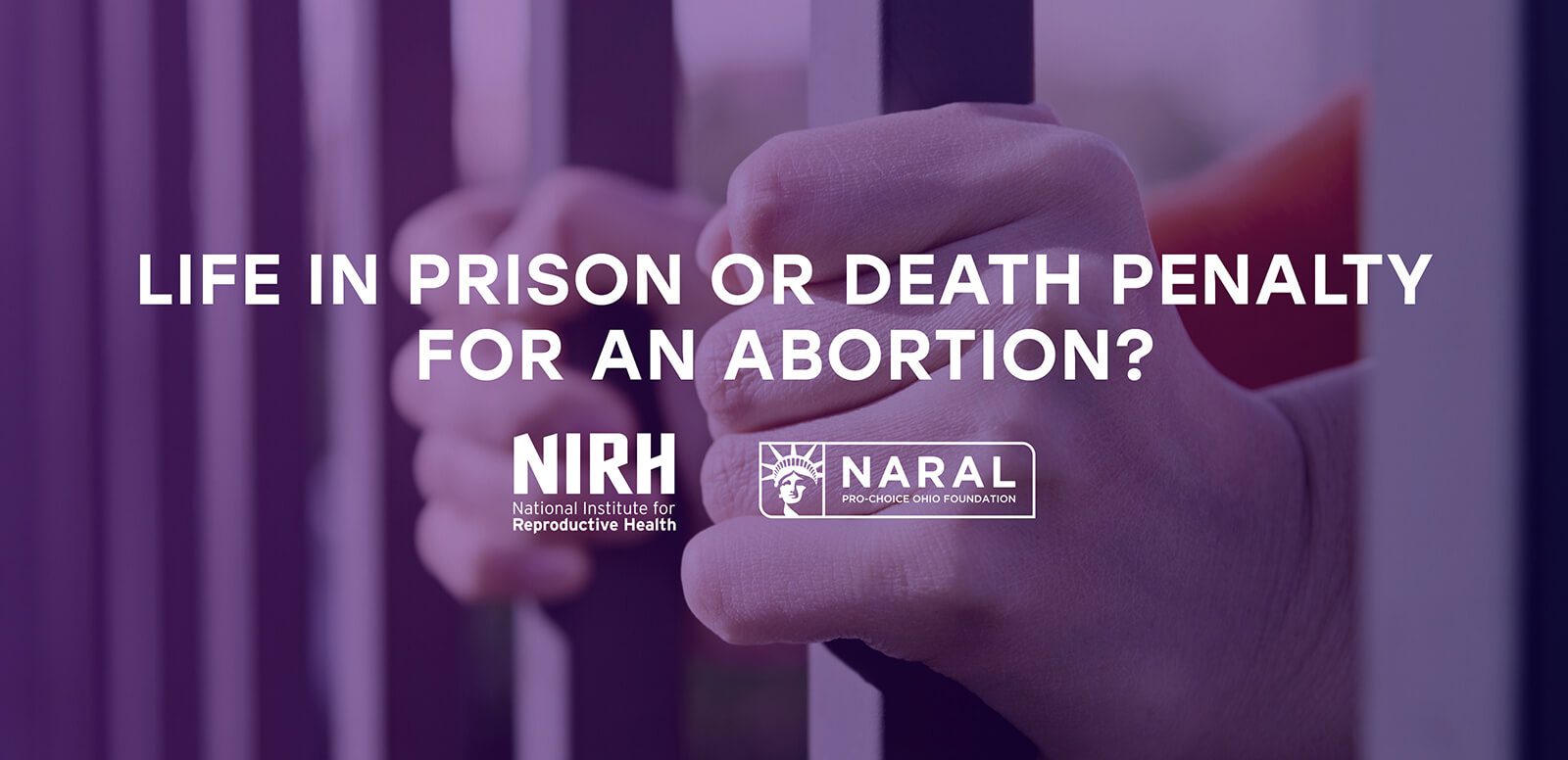

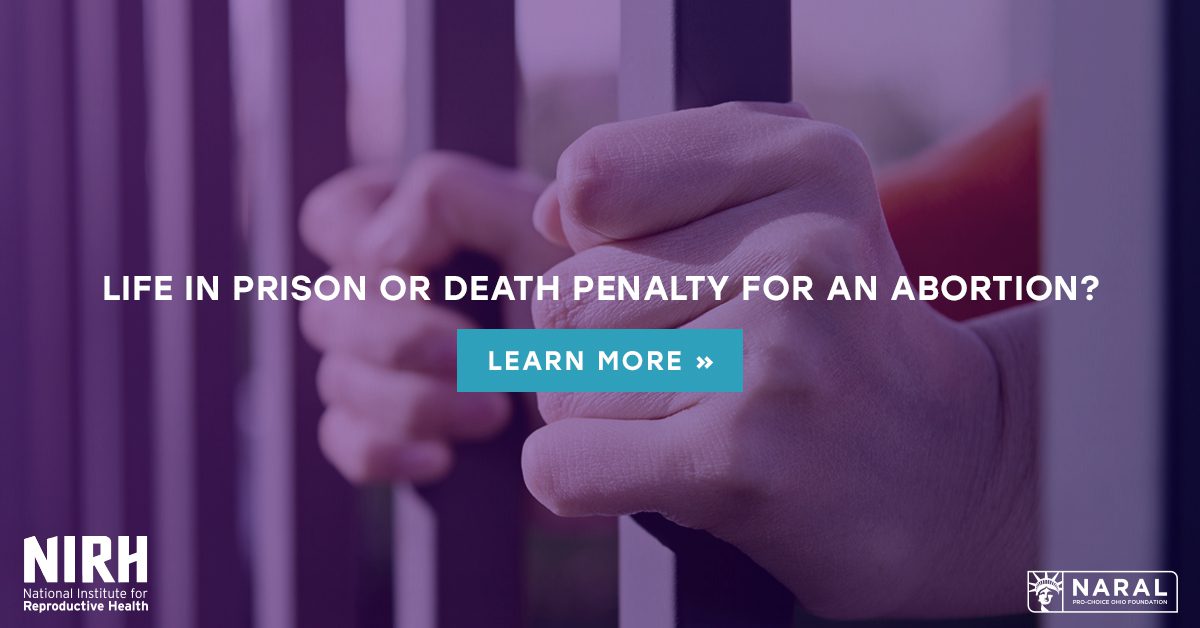
Michigan
In the fall of 2018, NIRH launched an advocacy campaign in Michigan in partnership with RECLAIM to educate the general public and legislators about Michigan’s dangerously outdated laws on the books that criminalize abortion. Without protections provided by Roe in place, Michigan’s 1931 abortion law would criminalize doctors who perform abortions, making them guilty of a felony. Doctors could be prosecuted and punished with up to two years in jail for performing a safe, common health care procedure.

